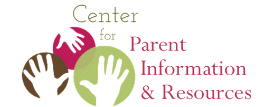Navigating Puberty and Developmental Disabilities Webinar
Family Matters PTIC, in partnership with Easterseals Family Support Services serving Chicago and the Greater Rockford Area, is proud to offer this specialized training designed to help families and professionals navigate the unique challenges that arise during puberty for youth with intellectual disabilities.
This interactive session provides practical tools and strategies to support youth as they experience the physical, emotional, and social changes of puberty, including:
Typical developmental milestones during puberty
How intellectual disabilities may impact a youth’s understanding and response to these changes
Tools for teaching body autonomy, personal hygiene, and healthy boundaries
Strategies for encouraging self-awareness, safety, and self-advocacy
Approaches to discussing sensitive topics like relationships and emotional regulation in a respectful, age-appropriate way
Participants will gain real-life examples, inclusive communication strategies, and access to valuable resources. This training empowers families and professionals to support youth with dignity, confidence, and compassion.
Target Audience: Parents, caregivers, educators, and professionals who support youth with intellectual disabilities.


